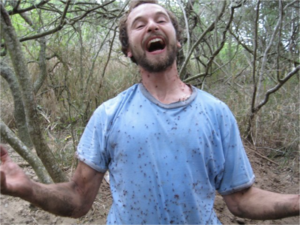Alexander Mikheyev
From Santa Fe Institute Events Wiki

Fist off, I go by Sasha... My email is simply my last name @ Google mail.
Bio
I recently graduated from the University of Texas at Austin with a Ph.D. in Ecology, Evolutionary Biology and Behavior. This transitional state comes with great freedom and flexibility, as I am now free to explore my interests and shape a new research plan for the future. I hope that the CSSS will be a source of new ideas, and an opportunity to meet interesting collaborators.
In the course of my dissertation I have have worked on a range of questions, such as:
- What are the genetic consequences of ecological interactions between species?
- What is the role of sex in facilitating adaptation?
- What allows certain organisms to invade new habitats and displace native species?
I was packing my bags to go on vacation, when I got an opportunity to join the CSSS at the last minute. I look forward to meeting all of you shortly.
Possible ideas for the summer school
One of the major areas of my research has focused on understanding how pools of unrelated species cooperate, and the evolutionary consequences of these interacts (e.g., bees and flowers in a field). In general, we know relatively little about how the strength of natural selection is partitioned into distinct components, such as interactions with kin, predators, competitors from other species, etc. Consequently, there is no unifying theory about how evolution in (and of) multi-species interactions should proceed. This is one of the major unsolved problems in biology, falling between the traditional sub-disciplines of ecology and evolutionary biology, and one that would be interesting to try to tackle in the course of the summer school.
Most of my work has thus far involved a combination of field work and molecular analysis. However, I think my next project will rely more on publicly available data. For example, in anticipating the flood of re-sequenced human genome data, which may allow us to look at a whole host of old problems in new ways, I am particularly interested in trying to do something with the Personal Genome Project. One possible direction is to look at population dynamics of selfish genetic elements using the dozen recently sequenced human genomes.
